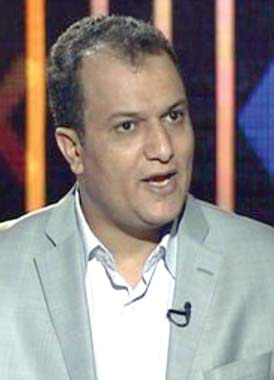Abdul-Malik Al-Ajri, a member of the Yemeni national negotiating delegation, has confirmed that Sana'a will not relinquish national gains, foremost among them the republic and unity. He warned against the efforts of the American-Saudi-Emirati aggression alliance to dismantle and fragment Yemen. He called on the components of the southern movement to address the southern issue through a comprehensive national dialogue.
Al-Ajri posted on his Twitter account, stating: "The republic and unity are the most important national gains in modern Yemen. They are red lines; anything less is a waste and scattering of ashes." This statement reaffirms Sana'a's commitment to unity and rejection of all attempts by the aggression alliance and its mercenaries to promote a division project.
This confirmation comes days after the militias, known as "the transitional council" in Aden, announced an escalatory step for a "separation" project.
Al-Ajri previously clarified that this step is considered a "complete coup against the entity of the Yemeni Republic," noting that such escalation "cannot happen without a green light from the aggressor countries." This refers to attempts by the enemy to use the card of the division project.
In this context, Al-Ajri added: "The arrangement for the return of the transitional council's leaders, with the aim of preparing for this escalatory step in the context of the existing negotiation atmosphere and Oman's good efforts during the past period, raises question marks about non-constructive intentions towards the existing understandings and Yemen's unity unless the concerned countries announce a clear position on this escalatory step."
Al-Ajri stated in his latest tweet that "the aggression alliance countries do not seek separation but rather the dismantling of Yemen into cantons, sultanates, and sheikhdoms in the north and south, where each fights against the other."
The aggression alliance uses the so-called "transitional council" militias as a local arm to consolidate the division project. Although these militias claim to represent the "southern cause," the aggressor countries use them to divide and fragment even the southern provinces themselves.
Al-Ajri added: "We appreciate the discontent caused by the unity of annexation and affiliation following the Summer '94 war among the components of the southern movement. However, we believe that the problem was in the unity system, not in the principle of unity." He implied that separation and division projects do not help resolve the southern issue but instead threaten Yemen's security and stability as a whole.
He explained that the southern issue can be addressed "through dialogue, considering it a national issue that everyone is concerned with, especially since the negotiating position of the components of the southern movement has improved and can help them achieve justice in unity based on the principle that anything less than justice is injustice and anything more than justice is also injustice, as the leader has said."
Al-Ajri had previously emphasized that "the southern issue is a national issue that cannot be monopolized by any component, no matter how much it claims so." He stressed that it "needs to be addressed at a comprehensive national table, away from the destructive regional tensions that harm the issue more than they serve it."







